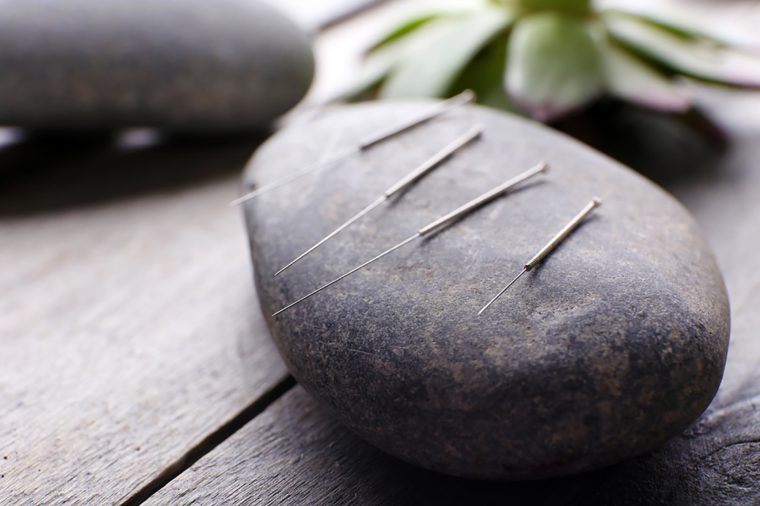
Fertility acupuncture. Specialization makes the difference.
Let me begin by saying that I have nothing against a general family acupuncturist, one that chooses to see a wide spectrum of conditions just as a traditional family medical doctor. Having a unique skill set to assess a broad range of conditions and offer triage is important. But knowing when to refer to a specialist in any particular discipline is also very important.
As a Chinese medical doctor specializing in fertility, I often get inquiries from women with very complicated issues. A recent 38 year old female patient came to me for help with her infertility after seeing a general acupuncturist for six months. According to the patient, the acupuncturist only assessed her from a Chinese medical perspective and failed to ask her any detailed questions about her biomedical history. Things like: how long had she been trying to conceive, did she have a western medical diagnosis for her infertility, had any hormone testing or blood work or any other diagnostic testing been done to rule out mechanical reasons for not conceiving, was she tracking her basal body temperatures and ovulation, etc. None of this had been questioned. Once the patient scheduled an appointment with me, I immediately asked her to begin charting her cycle by taking her basal body temperatures every morning. I also immediately learned that she had never had an evaluation from her gynecologist even though she had been trying to get pregnant for well over a year and a half with no pregnancies.
If a 38 year old woman has been trying to get pregnant for at least 6-months this definitely warrants a western medical assessment as something serious could be happening. By the time of her first visit with me she already had a full one month of temperature charting data for review. After a thorough evaluation of her situation from both a western and Chinese medical perspective including an assessment of these charts and symptoms as well as galactorrhea or milk discharge from her breasts, I referred her to an MD to test her hormones including her prolactin levels as I suspected these levels were elevated thus interfering with her ovulation. The results came back positive. She was diagnosed with hyperprolactinemia. An MRI ruled out a pituitary tumor and thus the typical western treatment for this is a medication called Bromocriptene or Cabergoline. The patient wanted to try to lower her levels naturally first, which her doctor agreed would not be dangerous. Two months of weekly acupuncture as well as Chinese herbal medicine and the levels did lower significantly. Anxious to become pregnant quickly however as she felt she was getting older, I concurred with her doctor that taking the medication was worth a try while we continued with regular acupuncture. Within 2 months, she became pregnant and went on to have a healthy baby girl.
In my opinion, she could have continued to get weekly acupuncture treatment only for a long time and still possibly never conceive. Sometimes acupuncture alone is enough, and sometimes it isn’t. Knowing when and what best course of action for a patient based on their unique situation is critical, especially when treating infertility. You don’t have time to waste and must be informed, and at times be swift in action to ensure you are making decisions in the best interest of a patient. The lesson here is not that the patient’s previous practitioner was bad, but just uninformed and not skilled in treating infertility. Treating infertility is not the same as treating someone’s general back pain. Time is sometimes of the essence and to waste it may be the difference between them having a child or not. To take that potential away from someone because you are not adequately trained or knowledgeable may be harmful.
My advice. Vet the person you consider working with. Just as you would want to make sure the doctor doing your open heart surgery has done this many times and is actually trained in cardiology, do the same for your fertility acupuncturist. If you have been trying to conceive for a while, or even if you are just starting the process, it is never too early to seek help. Perhaps a visit to your ObGyn isn’t necessary at this point but trained fertility Chinese medical practitioner can help you determine that. And if for example you are 40 years old and are just now seeking help because you haven’t been able to get pregnant in the past 2 years, you don’t have time to waste with an inexperienced practitioner. A good fertility acupuncturist/Chinese medical doctor will know the right questions to ask, have a thorough understanding of reproductive medicine from both a biomedical and Chinese medical standpoint, and most importantly, know when to either order appropriate diagnostic testing (if allowed in their State), or refer you to a Reproductive Endocrinologist and Infertility (REI) specialist and/or a gynecologist.
As President of the American Board of Oriental Reproductive Medicine (ABORM), a non-profit board that certifies Chinese medical practitioners as specialists in the field, I definitely have a bias. This voluntary organization certifies those practitioners that pass a rigorous exam in reproductive medicine and thereby have demonstrated that they have a competency in treating infertility. This worldwide organization has over 300 members and is growing steadily. ABORM began because patients and physicians alike demanded a higher level of care for fertility patients. Chinese medicine practitioners that are part of this organization often work integratively with traditional doctors and not against them. It is not about protecting our patient loads, but about protecting the patients. This is one area of medicine where specialization does make the difference.

Hi, very nice website, cheers!
Need cheap hosting for just $10/year? Or VPS, where plans starts with $6/Mo?
Check here: reliable-webhosting.com